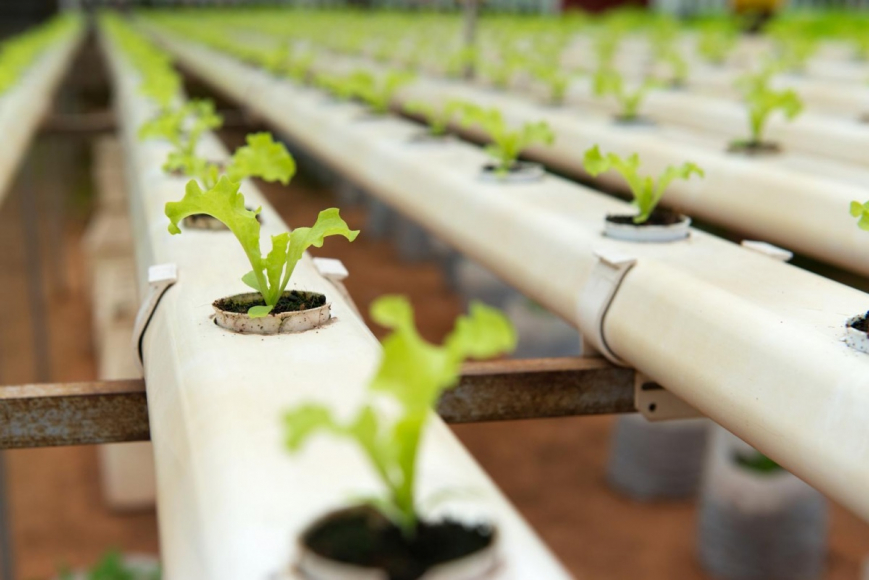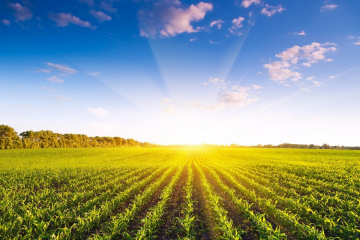There’s been a lot of talk about technology and disruption in the food and beverage industry lately. It can be easy to get swept up in these conversations about change and progress but we must challenge these amazing innovations to do more – they need to be workable, accessible, and most importantly, scalable to address the size of the task set before us.
So how can companies be sustainable, at scale, in a volatile market while also facing increasing scrutiny, rising expectations, and changing consumer desires? These are the issues we face at Kellogg as we strive to make food people love which is more than food that tastes great. People care about where their food comes from, the people who grow and make it, and that there is enough for everyone. Kellogg is one of the companies that is uniquely situated to bring attention to these important issues and play a role in tackling world challenges together with our peers, suppliers, retailers, governments and consumers.
So what does that look like in practice? Here are three hard-won tips to help you understand the place established companies can have in the new, disrupted, era--we hope these insights will help you approach the issues proactively, rather than reactively.
1. Focus on Farmers
How can a business make change when it controls such a small portion of the market? By bringing suppliers and farmers to work together with your business and other partners. Engaging a farmer is engaging an entire community, and there are several ways Kellogg is reaching out to partner with our sourcing communities for the greater good. We think there’s value in recognizing farmers for their incredible work and helping to tell their stories.
One important role businesses can play is helping to bridge the gaps innovations can create for suppliers; for example, Kellogg partners with agricultural retailers and farm management tools to provide farmers with access to new technologies and information about conservation. These partners are farmers’ trusted advisors and can share the business case for adoption of best management practices.
We are also getting creative on how certifications can support farmer innovation. Through our Kashi brand, we helped to create a market for a transitional certification for farmers who are making the change from traditional to organic practices. Usually this is a risky and costly move for them since they face a “gap period” of increased expense before seeing the benefits that come from organic certification – due to the certification requirements before they are allowed to label.
2. Communication is Key
Even though brands are already communicating with the public more than ever, consumers want more. Kellogg is addressing this in several ways, including Open for Breakfast, a website we created to answer consumer questions on nutrition and sustainability and introduce some of our farmers. We also give customers a deeper view into our social programs through Breakfasts for Better Days, which focuses on our efforts towards ending childhood hunger, promoting good farming practices, and supporting community food banks through employee volunteerism, donations, and our core business practices.
The flip side of the coin is that in order to implement new initiatives and make them stick, you need to get the word out. This includes activating the mascots or brand spokes-characters your customers already love, employing their help to spread the word about your sustainability efforts and great results. At Kellogg, this means familiar friends like Tony the Tiger™, the Keebler™Elves, and Toucan Sam™ help consumers learn about our sustainable practices.
3. Seek Balance
At the moment, uncertainty seems to be the prevailing state of the industry. How does a major global company balance the (possibly competing) social and environmental objectives and needs of its operations? The only way through is balance, with a healthy side of patience. As consumer preferences and expectations change around the world, we expect that brands’ social impact will play more and more of a central role. Mainstream retailers will continue responding and adjusting their supply chains and processes, leading to a more stable and coherent retail environment. It’s also helpful to remember that there is no one uniform Food System, but rather many interconnected food systems, and change across all of these systems will take both time and dexterity.
No organization has the capacity to simultaneously address every social, environmental and supply chain issue that touches them, so success will necessitate prioritizing initiatives, starting small, and having as much impact as possible given your constraints. At Kellogg, we conduct materiality assessments and have determined our 10 priority ingredients, as part of our 2020 Global Sustainability Commitments, on which we will report our progress annually. Staying focused, yet dynamic, is a balancing act we continue to try to perfect.
Embracing the Change
Although the industry is definitely in a time of change and evolution, established companies can learn from start-ups and adapt new ideas, especially in the world of sustainability. These organizations can be partners in your journey; ones where you can both learn from each other as we push our social impact beyond that of our four walls and into the mainstream. A balanced approach with what’s right for your organization will help bring focus to key members of the value chain along with transparent communication about sustainable practices.
Want to know more? Read our food & beverage and sustainability blogs to get started.
Want more news and insights like this?
Sign up for our monthly e-newsletter, The New Leaf. Our goal is to keep you updated, educated and even a bit entertained as it relates to all things EHS and sustainability.
Get e-Newsletter
About the Author
 Amy Braun
Amy Braun
Sustainability Director, Kellogg Company
Amy Braun leads Kellogg Company commitments for Responsible Sourcing by setting strategy with global procurement and government relations teams. She represents Kellogg in industry groups and with grower organizations as the company continues to encourage best management practices, partner with suppliers, and measure how they work to enhance the environment and livelihoods of the people and places where their ingredients grow. Efforts in this area have propelled Kellogg to leadership recognition for Science Based Targets, farmer and supplier engagement, and commitment execution.




